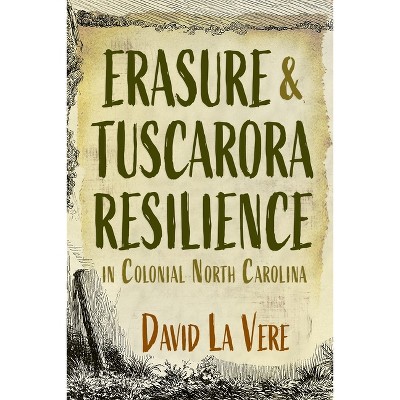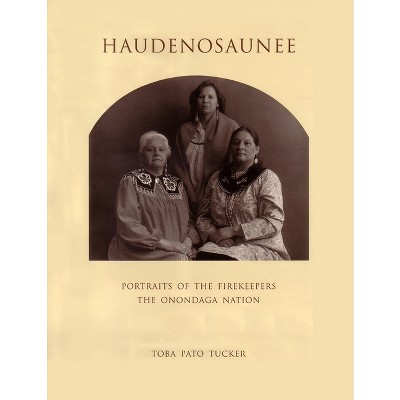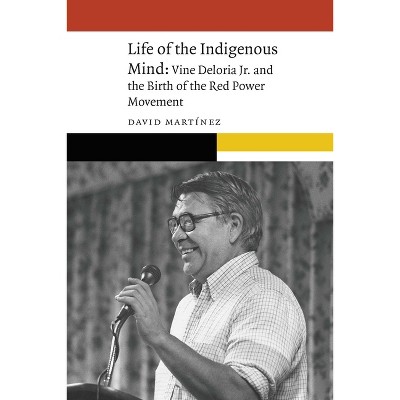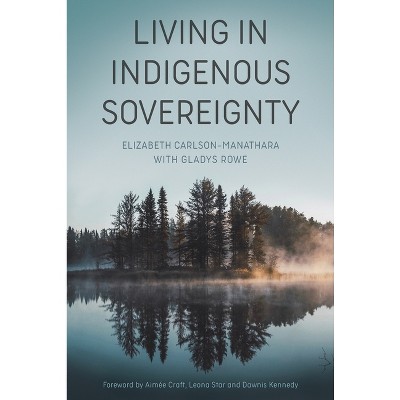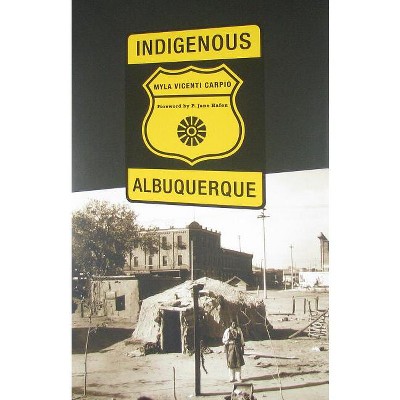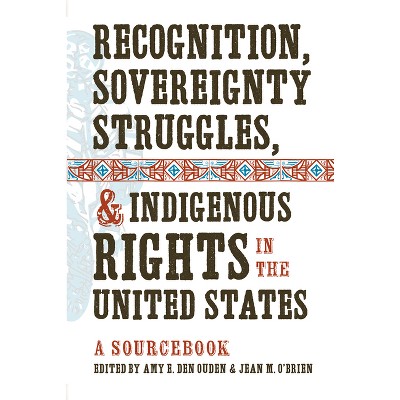The Urgency of Indigenous Values - (Haudenosaunee and Indigenous Worlds) by Philip P Arnold

About this item
Highlights
- In this book, Philip Arnold utilizes a collaborative method, derived from the "Two-Row Wampum" (1613) and his 40 year relationship with the Haudenosaunee, in exploring the urgent need to understand Indigenous values, support Indigenous Peoples, and to offer a way toward humanity's survival in the face of ecological and environmental catastrophe.
- About the Author: Philip P. Arnold is associate professor of religion at Syracuse University and the founding director of the Skä-noñh--Great Law of Peace Center, where the Haudenosaunee "Great Binding Peace" was founded at Onondaga Lake.
- 280 Pages
- Social Science, Ethnic Studies
- Series Name: Haudenosaunee and Indigenous Worlds
Description
About the Book
Examines the essential role of Indigenous values in understanding the origins and vitality of all religious life.
Book Synopsis
In this book, Philip Arnold utilizes a collaborative method, derived from the "Two-Row Wampum" (1613) and his 40 year relationship with the Haudenosaunee, in exploring the urgent need to understand Indigenous values, support Indigenous Peoples, and to offer a way toward humanity's survival in the face of ecological and environmental catastrophe. Indigenous values connect human beings with the living natural world through ceremonial exchange practices with non-human beings who co-inhabit the homelands. Arnold outlines Indigenous traditions of habitation and ceremonial gift economies and contrasts those with settler-colonial values of commodification where the land and all aspects of material life belongs to human beings and are reduced to monetary use-value.
Through an examination of the Doctrine of Christian Discovery, a series of fifteenth-century documents that used religious decrees to justify the subjugation and annihilation of Indigenous Peoples, Arnold shows how issues such as environmental devastation, social justice concerns, land theft, and forced conversion practices have their origins in settler-colonial relationships with the sacred--that persists today. Designed to initiate a conversation in the classroom, in the academy, and in various communities about what is essential to the category of Indigeneity, this book offers a way of understanding value systems of Indigenous peoples. By pairing the concepts of Indigeneity and religion around competing values systems, Arnold transforms our understanding of both categories.Review Quotes
Arnold's book is a brilliant example of a key Haudenosaunee value, the 'power of the good mind' as it brings to the center issues that are critical to the survival of Indigenous peoples, of humanity, and of the planet.-- "Robin M. Wright, Journal for Study of Religion, Nature and Culture"
...[T]he work details an Indigenous way of knowing a living world: developing connective relationships to the land through an array of exchange relationships. These attributes of Indigenous values offer a venue to transform a value change for solutions and survival.--G. R. Campbell, University of Montana "CHOICE"
This illuminating book's recovery of core Indigenous values--exchange rather than domination, habitation instead of occupation--promises to help all of us find a more balanced way of living with the world.-- "Robert P. Jones, author of The End of White Christian America"
Arnold illuminates how the tragic imposition of the materialist colonial worldview jeopardizes our relationship with the natural world and with one another. His urgent call for renewal of the Indigenous worldview grounded in respect, reciprocity, and reverence will help propel the values shift that might save us.-- "Robin Wall Kimmerer, author of Braiding Sweetgrass"
Through Arnold's personal journey he models how Indigenous values provide a framework for the survival of life, transforming religion in the process.-- "Sally Roesch Wagner, Founder and Executive Director, The Matilda Joslyn Gage Foundation"
What is distinctive about this book is the focus on Indigenous values and the ecological and human crisis we are living in.-- "Davíd Carrasco, Harvard University"
About the Author
Philip P. Arnold is associate professor of religion at Syracuse University and the founding director of the Skä-noñh--Great Law of Peace Center, where the Haudenosaunee "Great Binding Peace" was founded at Onondaga Lake. He is president of Indigenous Values Initiative, a collaborative non-profit organization that educates non-native people.





